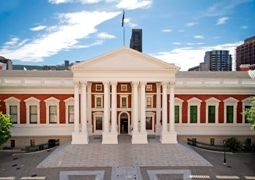
The National Council of Provinces’ (NCOP) Programming Committee met this morning to make changes to its committee and plenary sittings to accommodate the recent Constitutional Court judgement on local government elections.
This week marks the last week of the third term of the parliamentary calendar. This will allow members of the NCOP to engage in their constituency work and to campaign for their respective political parties. NCOP parliamentary work will resume in the week of 2 November.
On their return, the NCOP will have a ministerial briefing on the recent riots, which took away human lives and destroyed livelihoods and property. This briefing was meant to take place this week, but had to be postponed due to the recent ConCourt judgement. The NCOP will use this briefing to determine the extent of damage these riots inflicted on the economy, our country’s social fabric and what appropriate measures should be taken by which department or cluster departments to restore law and order, hope and the livelihood of those affected by these riots. But most of all, to prevent this from happening again.
Given South Africa’s ailing economy and dwindling sources of revenue, the NCOP will in the fourth term also hold a debate to consider the positioning of state-owned enterprises to improve their efficacy and to embrace their critical role in advancing our country’s developmental agenda.
This will be followed by a debate on the revised fiscal frame work and revenue proposals, presented primarily by National Treasury as well as other entities that are charged with the responsibility of ensuring that the state devises fiscal and financial frameworks that enable it to meet its social welfare obligations and bring about structural reforms to serve as catalysts for economic transformation and inclusive growth.
Tied to this is a plenary on the 2nd Special Appropriation Bill that is now before Parliament, which seeks to appropriate from the national fiscus the R359 Covid grant to bring social relief to poor households and to extend financial relief to sectors that may need government intervention.
In the fourth term, the NCOP will also deal with the provincial conditional grants. Various proposals have been advanced to ensure that the formula used to disburse these grants is current and reflective of the unique challenges and evolving nature of the population and economic situation.
As a standard procedure, the programme committee also received reports on interventions, petitions and Bills before the NCOP. Currently, the NCOP is dealing with 14 interventions. These are municipalities that are under the administration of national government due to failure to fulfil their executive duties and obligations. Thus leading to a back log in service delivery where they are located. Interventions are recommended the NCOP after it has embarked on an oversight visit to the affected and after careful consideration of reported related to it.
Currently, 16 petitions are under NCOP committees’ consideration, most of which concern the local government spheres and involve the Department of Corporative Government and Traditional Affairs.
The Bills before the NCOP scheduled for approval are the Employment Equity Bill, the Criminal Procedure Bill and the Criminal Law Bills. The Domestic Violence Bill is scheduled to be passed tomorrow.
Abel Mputing
9 September 2021

